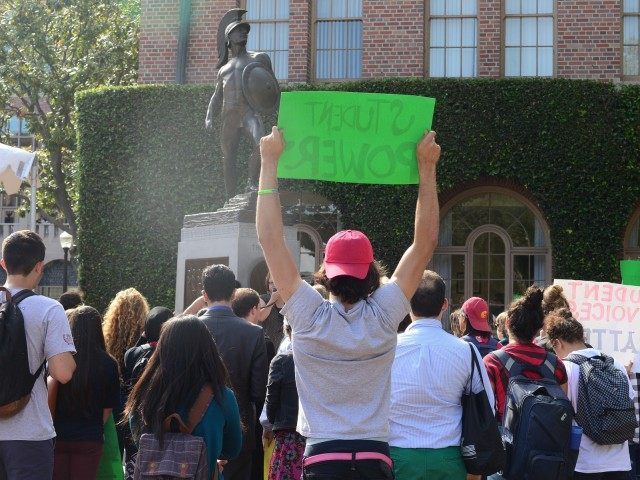Last week, after reviewing evidence from security footage, a California judge dropped charges against University of Southern California (USC) student Armaan Premjee, 20, after finding that his female accuser was the party that initiated the sexual encounter.
However, under USC’s Title IX, Premjee could still face campus discipline because the woman he slept with was inebriated and did not give formal verbal consent.
USC’s rules state, “Consent must be affirmative. ‘Affirmative consent’ means affirmative, conscious, and voluntary agreement to engage in sexual activity. It is positive cooperation in act and attitude made with knowledge and agreement to the nature of the act.” It adds, “It is the responsibility of each person involved to ensure they have the affirmative consent of the other(s) to engage in sexual activity. Affirmative consent must be ongoing throughout the sexual activity and can be revoked at any time.”
If USC finds Premjee guilty, he could be expelled. According to the New York Times, “The female student has not been identified, which is routine in cases involving claims of sexual assault.”
“My life will be ruined if I get kicked out of school,” Premjee said during an interview with Inside Edition last week.
Video footage, posted online, shows the female leading Premjee from the club in which they met, following him into an Uber and swiping an access or key card to allow him into her dorm once the duo was inside her building.
“She put her arms around my neck; she started kissing me within two minutes of meeting for the first time” at the club, Premjee told Inside Edition.
“If it weren’t for these videos I don’t know what I would have done,” Premjee reportedly said after the judge’s ruling. “I’m very grateful for these surveillance tapes.”
In an interview with the New York Times, Premjee said, “Without evidence, there’s no way to prove that consent did happen or didn’t happen. It’s just one person’s word against another.”
In 2014, Gov. Jerry Brown signed the “Yes Means Yes” law, which made the Golden State became the first to require “active consent” prior to sexual intercourse. Under the law, partners have to give “affirmative, conscious, and voluntary agreement to engage in sexual activity” before they engage in sexual intercourse.
One year later, the law was extended to California high schools.
The hashtag “#DearBetsy” started trending among feminists last month after Secretary of Education Betsy DeVos met with male students who had been falsely accused of, and disciplined for, sexual assault on campus.
Premjee told the New York Times that he did not know about the politics of the issue, but that he would likely support DeVos’s position in favor of reform: “The key issue here is evidence. In most sexual assault cases, there’s not video evidence like there was in my case. Innocent men are put in prison for that, or are punished, or kicked out of school.”
Photo: file

COMMENTS
Please let us know if you're having issues with commenting.